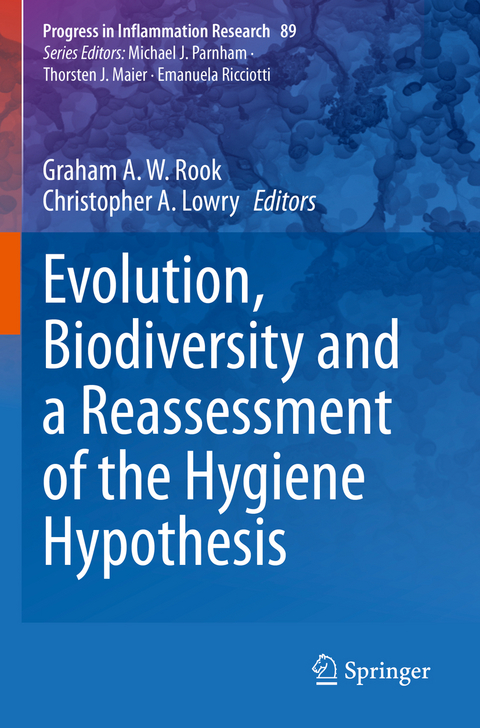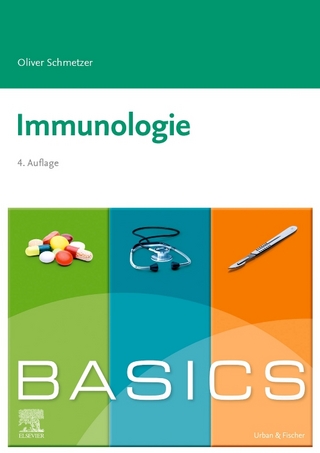
Evolution, Biodiversity and a Reassessment of the Hygiene Hypothesis
Springer International Publishing (Verlag)
978-3-030-91053-2 (ISBN)
This edited collection of 12 chapters by research workers from a wide range of disciplines resolves the confusion that currently surrounds the "hygiene hypothesis" by considering the human need for exposure to microorganisms from an evolutionary point of view. The book explains why we evolved a requirement for exposure to microbiota from our mothers, from other people, and from the natural environment. It also explains the physiological roles of these exposures, what goes wrong when the exposures are distorted and how human lifestyles and activities, including degradation of the natural environment, are leading to this distortion. Particular attention is given to the range of pathologies associated with inappropriate microbial exposures and inappropriate colonization, including immunoregulatory problems such as allergies and autoimmunity, metabolic problems such as obesity and diabetes, and problems of central nervous system function and neurodegeneration. This book is of profound relevance to most medical disciplines, but also to those concerned with preserving the natural environment and with developing healthier urbanisation.
lt;b>Graham A. W. Rook, BA MB BChir MD, is emeritus Professor of Medical Microbiology at UCL (University College London). He was educated at the University of Cambridge and at St. Thomas' Hospital London. He became professor of medical microbiology at UCL in 1994. The theme of his research was initially the immunopathology of tuberculosis, but in recent years GR's focus has been the application of a Darwinian perspective to the effects on health of diminishing exposure to microorganisms from the natural environment, and of the changing composition of our commensal microbiota. GR coined the expression "Old Friends Hypothesis" to highlight a Darwinian re-interpretation of the hygiene hypothesis in 2003. Recently, in collaboration with neuroscientists and psychiatrists, this thinking has been applied to psychiatric disorders that are accompanied by persistently raised biomarkers of inflammation and to the reduced stress resilience of people living in high-income countries. Thus GR's approach is interdisciplinary, with emphasis on integrative physiology.
Christopher A. Lowry, Ph.D. is an Associate Professor in the Department of Integrative Physiology, Center for Neuroscience, and Center for Microbial Exploration at the University of Colorado Boulder, with a secondary appointment in the Department of Physical Medicine and Rehabilitation (PM&R) and Center for Neuroscience, University of Colorado Anschutz Medical Campus, a Principal Investigator in the Department of Veterans Affairs Eastern Colorado Health Care System, VA Rocky Mountain Mental Illness Research, Education, & Clinical Center (MIRECC), director of the Behavioral Neuroendocrinology Laboratory at CU Boulder, Co-Director of the Military and Veteran Microbiome Consortium for Research and Education (MVM-CoRE), Senior Fellow and member of the Board of Directors of inVIVO Planetary Health, of the Worldwide Universities Network (WUN), and a member of the Board of Directors of Trails Please Foundation. Dr. Lowry's research program focuses on understanding stress-related physiology and behavior with an emphasis on the microbiome-gut-brain axis.
Chapter 1. From observing children in traditional upbringing to concepts of health.- Chapter 2. Human evolution, microorganisms, socioeconomic status and reconciling necessary microbial exposures with essential hygiene.- Chapter 3. Biodiversity, microbiomes, and human health.- Chapter 4. Regulation of host immunity by the gut microbiota.- Chapter 5. The gut microbiota and host metabolism.- Chapter 6. The impacts of the microbiota on animal development and physiology.- Chapter 7. The development of the gut microbiota in childhood, and its distortion by lifestyle changes.- Chapter 8. Distortion of the microbiota of the natural environment by human activities.- Chapter 9. The nature and functions of vertebrate skin microbiota.- Chapter 10. The influence of the microbiota on brain structure and function: Implications for stress-related neuropsychiatric disorders.- Chapter 11. Neurodegenerative diseases and the gut microbiota.- Chapter 12. Clinical application of the biodiversity hypothesisin the management of allergic disorders.
| Erscheinungsdatum | 28.03.2023 |
|---|---|
| Reihe/Serie | Progress in Inflammation Research |
| Zusatzinfo | X, 414 p. 46 illus., 45 illus. in color. |
| Verlagsort | Cham |
| Sprache | englisch |
| Maße | 155 x 235 mm |
| Gewicht | 715 g |
| Themenwelt | Studium ► Querschnittsbereiche ► Infektiologie / Immunologie |
| Schlagworte | allergy • autoimmunity • biodiversity • gut-brain axis • Hygiene Hypothesis • immunoregulation • inflammation • Metabolism • microbiota • Natural Environment • Neurodegeneration • Old Friends Hypothesis |
| ISBN-10 | 3-030-91053-9 / 3030910539 |
| ISBN-13 | 978-3-030-91053-2 / 9783030910532 |
| Zustand | Neuware |
| Haben Sie eine Frage zum Produkt? |
aus dem Bereich


